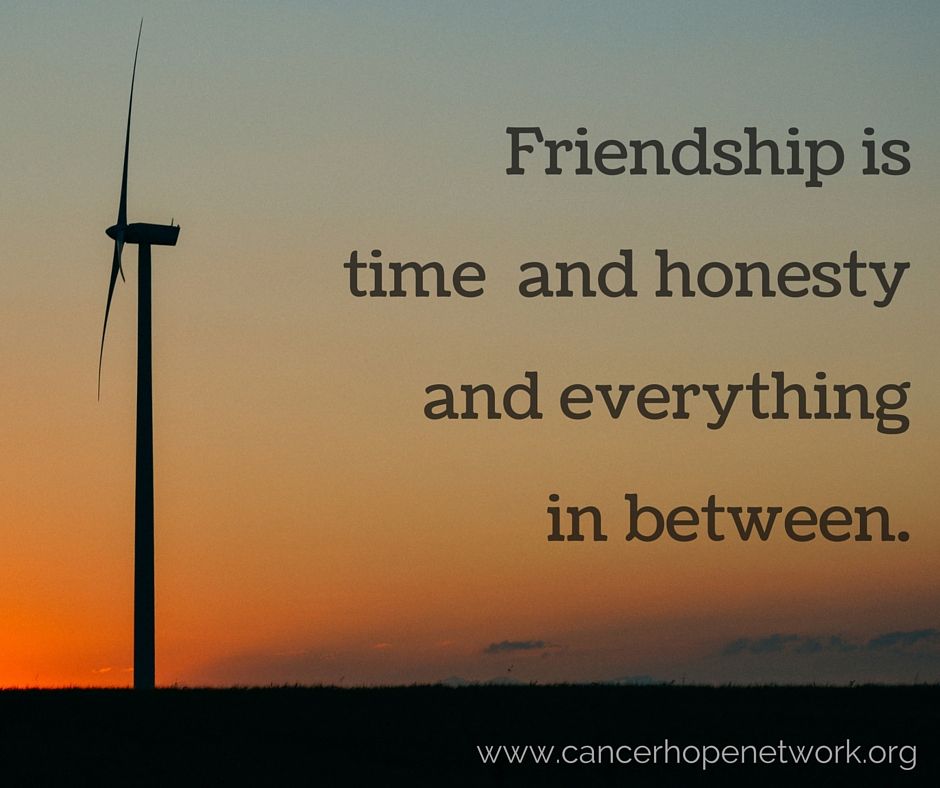Jerky Things To Avoid Saying to Your Friend with Cancer
Friendship is time and honesty and everything in between.

A friend is someone who sees you at your best and pushes you to be better. They see you at your worst and somehow convince you that things aren’t all that bad and that everything will be okay. Friendship is laughter and kinship and acceptance and joy. It’s life-defining adventures and sitting on the couch doing nothing. Friendship is time and honesty and everything in between. But add a cancer diagnosis to the mix and even the greatest friendships can be tested.
For caregivers and friends, there’s the fear of saying The Wrong Thing or the guilty terror of not knowing what to say at all. For patients, there’s too often a litany of insensitive remarks and unhelpful advice.
With that in mind, here are some actual comments made to our Support Volunteers. Avoiding these “jerky things” may not make your communication perfect, but we hope they’ll guide you as you begin a conversation.
You have renal/brain/colon/breast cancer? My cousin/friend’s mother/old neighbor died from that!
Yes, you’re looking for common ground, but starting with the loved one who passed away is nearly as bad as forwarding articles that just happen to be all about the hero’s losing fight against renal/brain/colon/breast cancer. Feel free to share those success stories though!
I’m so scared for you.
Cancer is scary, we get that. It’s scary for us too. But think about tone. Replace “I’m really scared for you. What on earth are you going to do???” with “I’m scared for you. I know there are a lot of unknowns in cancer, but you’re a fighter.”
Let me tell you about this new treatment I read about/saw on TV.
Cancer patients work with their medical team to explore treatment options and select the best protocol possible. Unless asked, keep your medical advice and alternative treatments to yourself.
You’re so strong.
This one’s tricky. But, in the words of a longtime Support Volunteer, “Sure, you mean well. But some days, I don’t want to be strong. I want to scream. And cry. And not have everything handled.”
Give me a call if you need anything.
Okay — this isn’t really jerky, but as a great friend, don’t wait for a call. Show up to mow the lawn or shovel the snow. Call to say you’re picking up the kids after school. Offer to drive to doctor’s appointments and take notes. Many patients don’t want to add to their loved one’s stress by asking for help.
Other contenders that don’t require an explanation — despite popping up with surprising frequency:
"It’s only hair."
"It will grow back."
"Did you smoke?"
"I told you that you should have quit."
Most importantly, remember — this is your friend. If you don’t know what to say, that’s okay. Ask them what they need. Listen.
Want to talk to someone who’s been through this fight? Call 877-HOPENET to speak to a Support Volunteer today. CHN is proud to provide emotional support for cancer patients and their families.
Special thanks to Sam L and other Support Volunteers for sharing their experiences for this post.



